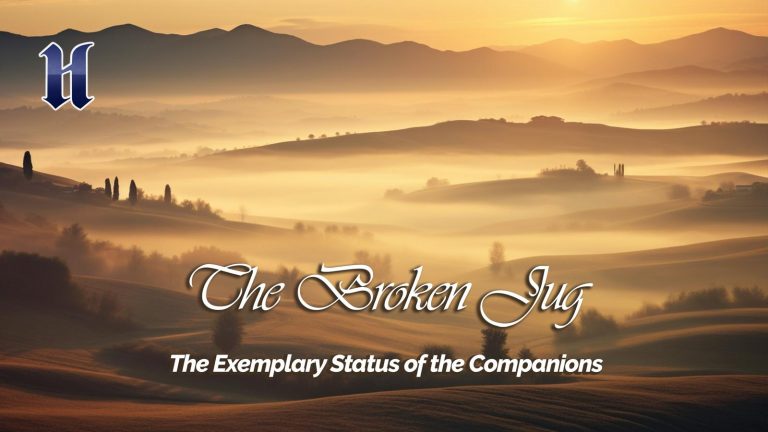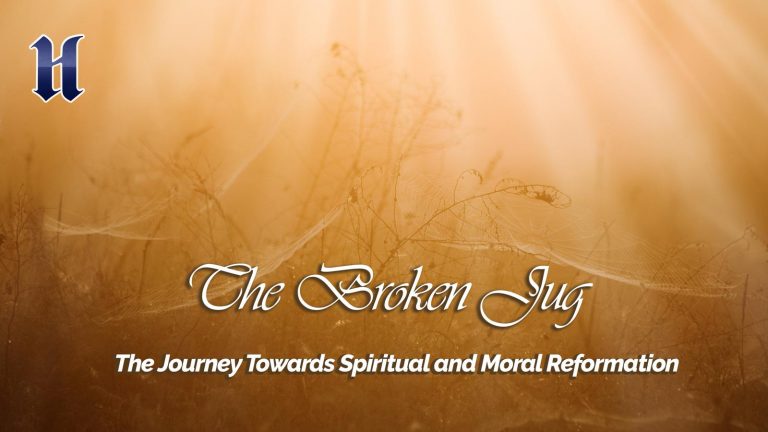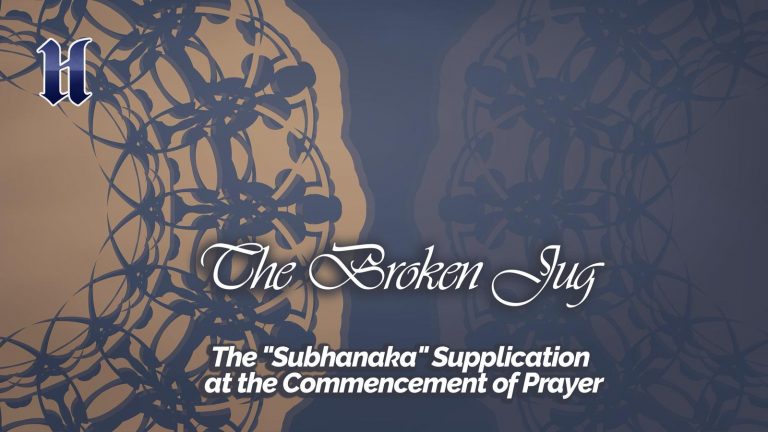Question: Bediüzzaman states that in his forty years of life he learned four words and four phrases, and “viewpoint” (nazar) is one of these words. Would you please tell us the meaning to be inferred from the word “viewpoint”, and how do you describe a “viewpoint” that becomes believers?
Answer: In his work: Al-Mathnawi al-Nuri (Seedbed of the Light), Bediüzzaman draws attention to the importance of four key phrases: mana-i ismi (self-referential meaning), mana-i harfi (other-indicative meaning), intention, and viewpoint.1
Since these are closely interrelated, let us briefly introduce the first three phrases before we expound on the fourth.
Mana-i İsmi and Mana-i Harfi
These two phrases essentially belong to Arabic grammar. An ism (noun) has a meaning on its own. That is, when you say it as a word, the person addressed understands its meaning. However, a harf (letter) cannot be understood on its own, since it does not bear an individual meaning. For example, prepositions such as “with, from, to, in” do not give a meaning on their own. In order to understand their meaning, they need to relate with other words. Just as Bediüzzaman attaches special meanings to the phrases juz (part) and kull (whole), here he similarly gives new meanings to the concepts of mana-i harfi and mana-i ismi. Specifically, he uses these as key concepts for interpreting existence. He believes it is a mistaken perspective to view the universe with mana-i ismi, that is, simply seeing things as beings on their own or products of causes. Instead, he states that things in the universe should be viewed with respect to what they point to. Accordingly, blessings should bring to mind the Giver of blessings; the beauty and art in creation should bring to mind the Artist, and causes should bring to mind the True Causer who creates them.
Intention, Which Changes the Nature of Deeds
As for intention, Bediüzzaman states that intention resembles an elixir that turns daily habits and acts into worship, and a spirit that enlivens dead conditions, bringing life to them with a meaning of worship. He also posits that even some wrong acts can turn into good deeds due to the intention behind them. It can be said that making a wrong decision can be a means for spiritual rewards if the intention is sincere. There are certain points in religion that are left to the flow of time. When time and conjuncture generate some gaps in them, they need to be “filled” with certain disciplines and principles in conformity with the spirit of religion; this is called ijtihad (the process of deriving legal judgments from the established principles of the Qur’an and Sunnah to meet new circumstances). The mujtahid (a scholar authorized to deduce new laws) is the person who strives to fill such a gap. Therefore, he will gain a reward for his sincere intention even if his decisions are not correct. On the other hand, the deeds of a person who does not aim to seek the good pleasure of God but instead to gain fame, or to demonstrate his courage, generosity, and knowledge, will gain him sins instead of rewards. At this point, you can think of a hadith related in the Sahih Muslim: Three unfortunate men were called to account in the presence of God. The first one fought in the world so that others appreciated his bravery. The second one donated to charity so that others appreciated his generosity. And the third one tried to make people admire him as a great scholar. Thus, if a man writes articles and books, if he pretends to give great sermons and tries to present examples of eloquent speech, it means that such a person closes his eyes to the good pleasure of God, in return for appreciation from people. One who acts on such a simple and contemptible consideration resembles an ignorant one who sells the priceless jewel in his hands for the price of a piece of rough iron. However, if he had sought an infinite reward such as the good pleasure of God, what he obtained through his efforts would have been completely different.
Viewpoint and Being Able to See
As for the word “viewpoint”, above all else, a person needs to know how to see. As it is known, looking and seeing are different things. If a person with open eyes does not look consciously with an intention to see, it will not be possible for him or her to tell the difference between things. For example, if a man turns his eyes absentmindedly to the bookshelf in front of him, the books, writings, colors, and patterns there will not register with him. Seeing is something beyond looking. It means realizing the objects in sight and having a perspective of them.
Another dimension of viewpoint is about determining what to look at and how. For example, if people view everything according to the criteria of the three-dimensional realm, they will not be able to see, sense, and feel so many things. In the past, a comment by a cosmonaut appeared in the media. He made a remark that he had toured around the world but did not see God. The famous poet Necip Fazıl responded to this mistaken point of view as follows: “You fool, who told you that God was a balloon in space!” If one tries to see God Almighty, who cannot be contained by time and space whatsoever, like a physical object in the sky, then he can never see the truth and can never be saved from making such mistakes. For this reason, let us state once more that not being able to adopt a correct viewpoint is one of the obstacles to faith, along with other factors such as arrogance, wrongdoing, and imitating ancestors. On the other hand, the entire existence bears witness in every way to the existence and oneness of God. Bediüzzaman voices this truth in his Al-Mathnawi al-Nuri as follows:
Ponder the lines of the universe,
For they are messages to you from the highest abode.
However, a materialistic, naturalistic, and positivistic viewpoint of the universe makes it impossible to hear the voice of creation, which proclaims the Creator through millions of tongues. Even if people with such an outlook study the universe meticulously—since they cannot see in spite of looking, since they cannot pass beyond the apparent reality—they will conclude every issue with naturalism again. In other words, since they do not know what to look at and how, they will fail to attribute the things and phenomena that they study to their true Divine source.
The viewpoint Bediüzzaman presents through an imaginary debate with Satan about the Qur’an is important for our subject here. There, Bediüzzaman draws attention to the fact that a person who considers the Qur’an needs to see it as the word of God. The reason is that, if the Qur’an is assumed to be a body of human words, it will have been degraded from the heavens to the level of a simple text. It is a reality that the Qur’an is Divine speech revealed in a comprehensible form for humanity as a blessing. Still, one first needs to look at it with a correct viewpoint in order to feel this Divine message coming from beyond, with its true depth and immensity.
A Comprehensive Look
Another point to be mentioned concerning the issue of viewpoint is having a comprehensive view of creation. This can also be called a perfected viewpoint. Nevertheless, let me note that it is not easy to obtain such a comprehensive viewpoint, particularly while pondering the outside world, and everybody may not be able to achieve such a viewpoint. For this reason, Bediüzzaman suggests the principle of “thinking deeply with respect to one’s inner world, and having a comprehensive look with respect to the outer world,” during reflection (tafakkur). That is to say, one may recognize his or her own being, by looking at one’s own anatomy and physiology under the light of medicine (rather than looking at other beings) and can delve into it more easily. For example, when a person monitors the systems working in his or her body with a conscious view, it is possible to see the absolute power and infinite knowledge beyond that splendid order and dizzying harmony. In the same way, when individuals look at the depths of their inner world such as the heart, soul, and other mysterious human subtle faculties—sir (the secret), khafi (the hidden), akhfa (the most hidden)—that make up their spiritual structure, they can hear the voice of their heart, understand the meaning of their feelings, comprehend what consciousness truly means, and realize their willpower. Thus, individuals can reflect upon, contemplate, and ponder their own self with respect to both their physical and metaphysical (mulk and malakut) dimensions and thus attain great profundities and immensities. As for the universe, one is supposed to adopt a comprehensive look. According to Bediüzzaman, knowledge gained from the outer world cannot be free from apprehensions and groundless fears. However, knowledge from one’s own inner world is free from delusions and suspicions. Thus, it is more sensible to look from the center to the periphery, from the inside to the outside.
Individuals can more easily look at the universe through the scope of their inner world, using it like a field glass, because it is possible to see the laws prevalent inside in the outer world as well. If one follows these patterns, it becomes possible to gain profundity in the inner world first, then to witness that all of the systems in the outer world take place with His infinite power, then to see that the same laws operate in the great book called universe, and then it will be possible to read the outside world with a comprehensive look.
1. Nursi, Bediüzzaman Said, Al-Mathnawi al-Nuri, New Jersey: Tughra Books, 2007, p. 67
This text is the translation of “Varlığı Yorumlamada Anahtar Kavramlar“






